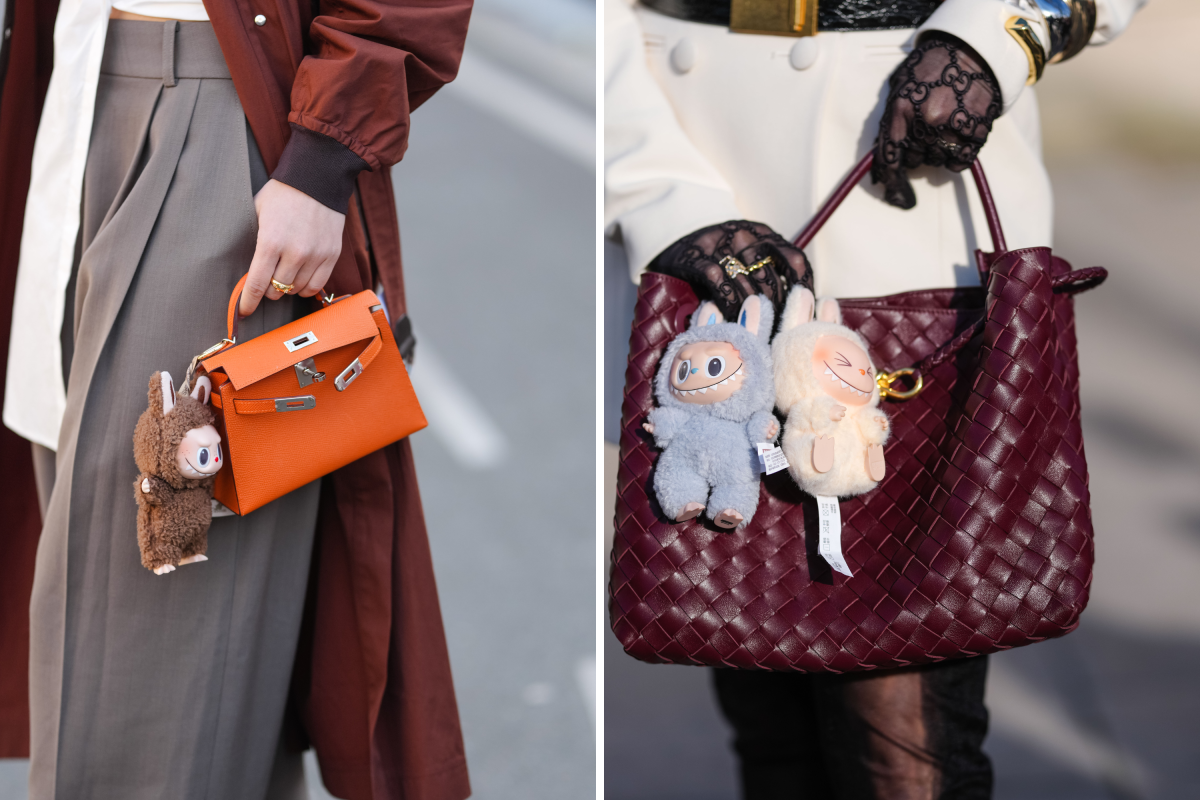Fluffy, toothy and bright, Labubu dolls have taken the U.S. by storm. But what actually are they? This is what you need to know about the Chinese product sweeping the internet.
Newsweek has reached out to Pop Mart, the manufacturer of Labubu dolls, via an online form for comment.
The Context
China and the U.S., the two largest economies in the world, are currently locked in an escalating trade war which is rattling global markets.
President Donald Trump’s administration has imposed a 145-percent duty on exports from China, who have vowed to “fight to the end,” and retaliated with a 125-percent duty on American goods.
What Are Labubu Dolls?
Labubu dolls are fluffy, gremlin-style toys that are equal parts cute and creepy. They come in an array of different colors and feature big, pointed bunny rabbit ears, wide eyes and a wide spiky-toothed grin. Part of a wider series of creatures dubbed “The Monsters,” inspired by mythology, Labubus are designed by Hong Kong artist Kasing Lung.
And the dolls have a major viral cache on social media. Videos featuring Labubu dolls, including vlog-style content where creators go to purchase them, explainer videos and online hauls of the toys, regularly rack up hundreds of thousands of views on TikTok. People flock to malls and stores to try to get their hands on the toys and they quickly sell out online.
Part of the appeal is that Labubus are sold as “blind box” collectibles, which means you don’t know which you’ve got until you’ve opened the box. This makes it harder to collect a full set and adds to the appeal of the unboxing videos. Some Labubu dolls are rarer and more valuable than others, which also adds to the mystery and appeal.
The Labubu doll plays into one of the most dominant fashion trends of the past few seasons: the bag charm. According to fashion data website Lyst,in 2024, demand for bag charms and bags with embellishments rose by 352 percent month-on-month and they were a prominent feature on the FW25 runways, appearing in 33 percent of Louis Vuitton menswear looks, as per Databutmakeitfashion.
The dolls also come with the endorsement of some of the celebrity world’s biggest players—both Rihanna and Lisa from BLACKPINK have been spotted sporting the toy, and they popped up in many a street style snap from Paris Fashion Week at the AW25 shows. The toy, which generally retails for between $20 to $30, was pictured clipped onto designer bags from the likes of Miu Miu, Hermes and Bottega Veneta, all of which retail for thousands of dollars.

Canva/Edward Berthelot/Getty Images
In the past year, the Chinese toymaker’s annual revenues grew in Southeast Asia by 619 percent to $309 million dollars, as per CNN. Shares in Pop Mart have risen more than 95 percent this year, after a 370 percent surge in 2024, according to the South China Morning Post.
Where Can You Buy Labubu Dolls?
Labubu dolls can be purchased on the original Labubu site, eBay and Amazon for U.S. customers, though the dolls quickly and frequently sell out.
Will Labubu Dolls be Impacted By Trump’s Tariffs?
Labubu dolls will certainly be impacted by Trump’s tariffs. U.S. consumers will see a 27-percent increase in prices for the latest Labubu 3.0 series, with the dolls rising from $22 to $28 per figure, according to a report from Jeffries.
And it’s not just Labubu dolls that will be hit—according to the Toy Association, almost 80 percent of the toys sold in the U.S. are sourced from China. It is anticipated that there will be a 15- to 20-percent rise in the cost of toys like games, dolls and cars.
In response to the tariffs, it has been reported that Pop Mart is looking at diversifying its supply chain and moving some of its production to Vietnam. The company already has a site in the country where, according to a report from financial group Jefferies, they manufactured 10 percent of their total output by the end of 2024 and they aim to make all of their products there by the end of this year.
What’s Next
Whether Labubu dolls will hold onto their popularity and how this will be influenced by the tariffs remains to be seen.

